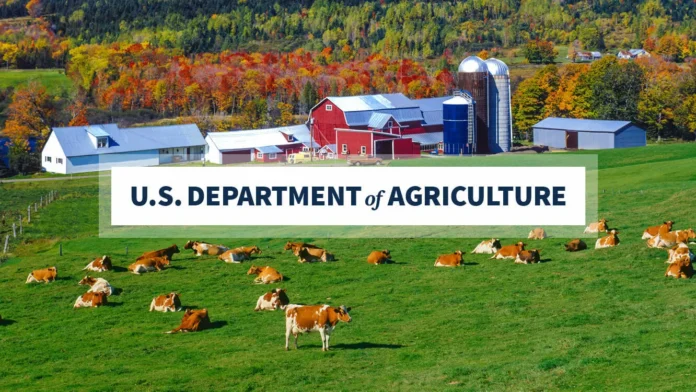HERSHEY, PA, October 17, 2024 – The future of agriculture is looking brighter than ever thanks to the U.S. Department of Agriculture (USDA) and their groundbreaking initiative, the Partnerships for Climate-Smart Commodities. This innovative funding opportunity has been a game-changer for farmers and producers across the country, as it not only supports sustainable production methods but also expands markets for their commodities.
Since its launch, the Partnerships for Climate-Smart Commodities has been making waves in the agricultural industry, providing a much-needed boost for climate-smart production methods. These methods not only help reduce the impact of agriculture on the environment, but also improve the resilience of our food systems in the face of climate change.
One of the key components of this initiative is the collaboration between the USDA and various partners, including farmers, ranchers, food companies, and conservation groups. By working together, they have been able to develop and implement innovative solutions that benefit both the environment and the economy.
Through this partnership, the USDA has been able to provide financial support to farmers who are implementing climate-smart practices such as precision agriculture, cover cropping, and rotational grazing. These practices not only reduce greenhouse gas emissions but also improve soil health and water quality. This not only benefits the environment but also leads to higher yields and better quality crops for farmers.
In addition to financial support, the USDA has also been providing technical assistance and training to farmers to help them adopt these practices. This has been crucial in ensuring the success of the initiative, as it helps farmers understand the benefits of climate-smart production and how to implement it effectively.
The impact of the Partnerships for Climate-Smart Commodities has been far-reaching, with success stories coming in from all corners of the country. For example, in the Midwest, farmers have been able to reduce their greenhouse gas emissions by 25% through the use of precision agriculture techniques. In the Southeast, cover cropping has helped improve soil health and reduce erosion, leading to more sustainable farming practices. And in the West, rotational grazing has not only reduced emissions but also improved the health of rangelands.
But the success of this initiative is not limited to just the agricultural sector. It has also had a positive impact on the economy by expanding markets for climate-smart commodities. With consumers becoming increasingly conscious of the environmental impact of their food choices, there has been a growing demand for sustainably produced commodities. This has opened up new opportunities for farmers and producers, leading to increased economic stability and growth in rural communities.
The Partnerships for Climate-Smart Commodities has also been a key player in the fight against climate change. Agriculture is a significant contributor to greenhouse gas emissions, and by promoting sustainable practices, this initiative is helping to reduce the impact of agriculture on the environment. This is not only beneficial for the planet but also for future generations who will inherit a more sustainable and resilient food system.
As we celebrate the ongoing success of the Partnerships for Climate-Smart Commodities, it is important to acknowledge the hard work and dedication of all the partners involved. From the farmers and ranchers implementing climate-smart practices to the food companies and conservation groups supporting the initiative, everyone has played a crucial role in making this a success.
But the work is far from over. The USDA remains committed to expanding this initiative and reaching even more farmers and producers across the country. With the support of the government and the collaboration of all stakeholders, we can continue to build a more sustainable and resilient agricultural sector.
In conclusion, the Partnerships for Climate-Smart Commodities is a shining example of how collaboration and innovation can lead to positive change. It has not only supported sustainable production methods but also expanded markets for climate-smart commodities, benefiting both the environment and the economy. As we look towards the future, we can be optimistic that initiatives like this will continue to pave the way for a more sustainable and prosperous agricultural sector.

